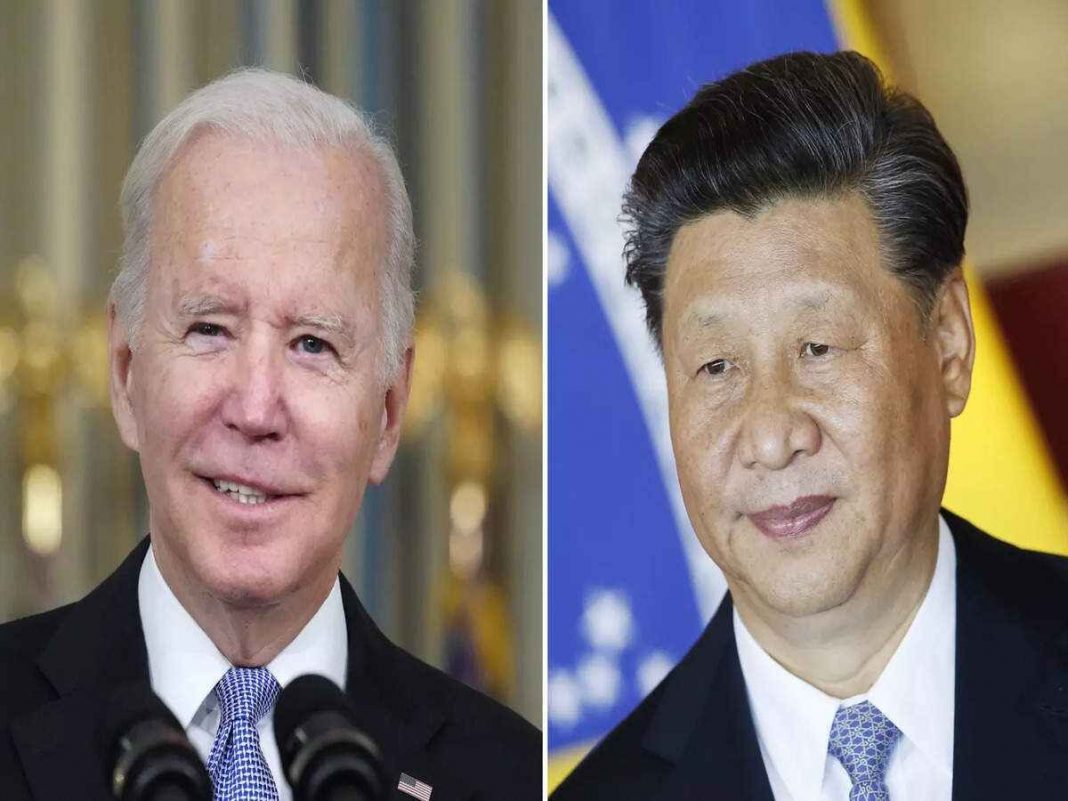Following a diplomatic standoff that resulted in the expulsion of some American journalists from China during the last year of the Trump administration, the United States and China reached a deal on Tuesday to remove limitations on foreign media working in both countries.
The agreement was originally announced by China Daily, a state-controlled publication in China, and then confirmed by a statement made by the United States Department of State.
Three news organisations — The Wall Street Journal, The Washington Post, and The New York Times — will be permitted to send journalists back to China under the terms of the agreement, which was made public just a day after President Biden met with Chinese President Xi Jinping. However, it was unclear whether the specific correspondents who were expelled from the country last year would be permitted to return to their jobs in China.
The United States, which previously restricted visas for Chinese journalists to 90 days, will now provide yearlong visas to international journalists, which will be renewed on an annual basis. Both governments agreed to make it simpler for journalists to enter and leave their respective countries without fear of losing their ability to return to their respective places of employment.
Journalists from both nations will be required to fulfil the usual eligibility conditions for visas set out by the legislation of both countries before being permitted to travel.
Officials in the United States hailed the deal as the culmination of months of discussions aimed at easing some of the rising tensions between the two giants as they compete for economic dominance and public relations supremacy around the world.
Whether the agreement — which was not discussed during Mr. Biden and Mr. Xi’s virtual summit on Monday, according to White House aides — fully undoes the expulsion actions taken by China against the three newspapers in March, when the coronavirus pandemic was just beginning to spread outside of the country, remains to be seen, according to White House aides.
Whether veteran journalists from three American news organisations who were expelled last year will be able to return to their former beats is at stake, allowing the newspapers to capitalise on their expertise and sources while continuing to document the actions of China’s government, business community, and society is at stake.
A representative for The Times did not immediately respond to a request for comment on allegations of a new deal involving the treatment of journalists. A representative for The Washington Post refused to comment.
In his remarks, Orville Schell, director of the Asia Society’s Center on United States-China Relations, said the agreement represented a sincere attempt on the part of diplomats in both countries to move toward a more functional bilateral relationship.
The Chinese government has been attempting for years to place limitations on American journalists who have aggressively reported the government’s operations. Chinese authorities have reduced the duration of visas for journalists working for American news companies in an attempt to deter the journalists from writing critically about the regime for fear of being expelled from the country.
In early 2020, however, tensions over the issue of journalists became even more heightened as former President Donald J. Trump escalated his rhetoric about the origin of the coronavirus in China and restricted the number of Chinese citizens who were permitted to work in the United States for Chinese state-owned media groups that are widely believed to be propaganda outlets.
Two weeks later, journalists working for the three American newspapers were ejected from China. Early in May, Mr. Trump’s government replied by blocking Chinese journalists’ ability to operate in the United States for a period of 90 days. Chinese journalists were formerly granted yearlong visas that permitted them to travel freely around the United States and return at the end of their trip.
A worsening relationship between the United States and China under the Trump administration, which fought with Beijing over tariffs and other economic concerns, as well as Mr. Trump’s frequent condemnations of the Chinese government in connection with the Covid-19 outbreak.
Mr. Biden has likewise taken a tough stance on China, though he has attempted to temper the level of animosity between officials. Officials from the United States and China said the virtual meeting between the two presidents on Monday was intended in part to prevent misunderstandings and harsh rhetoric from escalating into a full-fledged clash with China.
Mr. Schell, who assisted in facilitating conversations between State Department officials and leading journalists several months ago to discuss the issue, believes Mr. Xi’s willingness to accept the new arrangement may indicate that he recognises the importance of the news media, even in a country as authoritarian as China. Mr. Xi’s willingness to accept the new arrangement may indicate that he understands the importance of the news media, even in a country as authoritarian as China.

